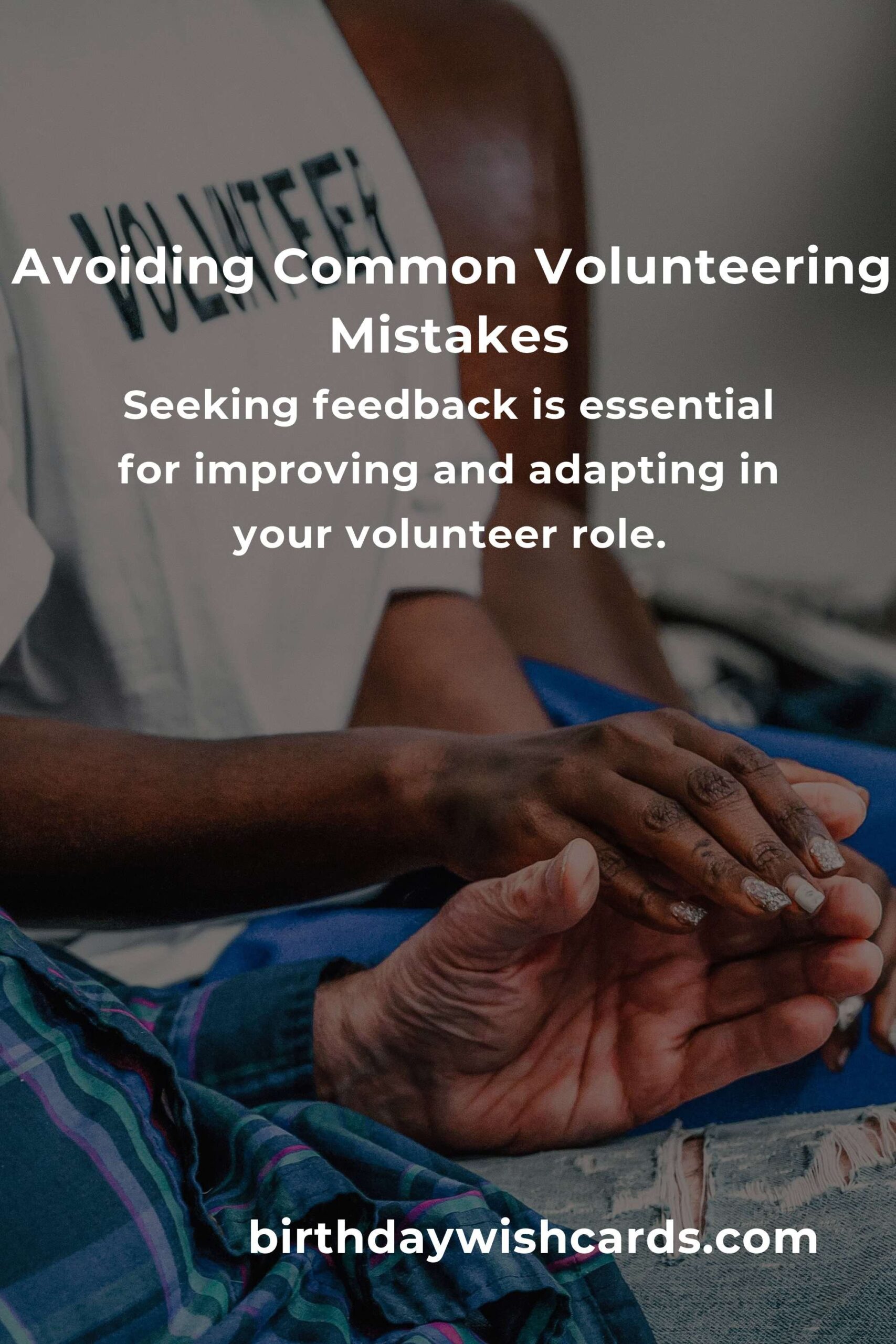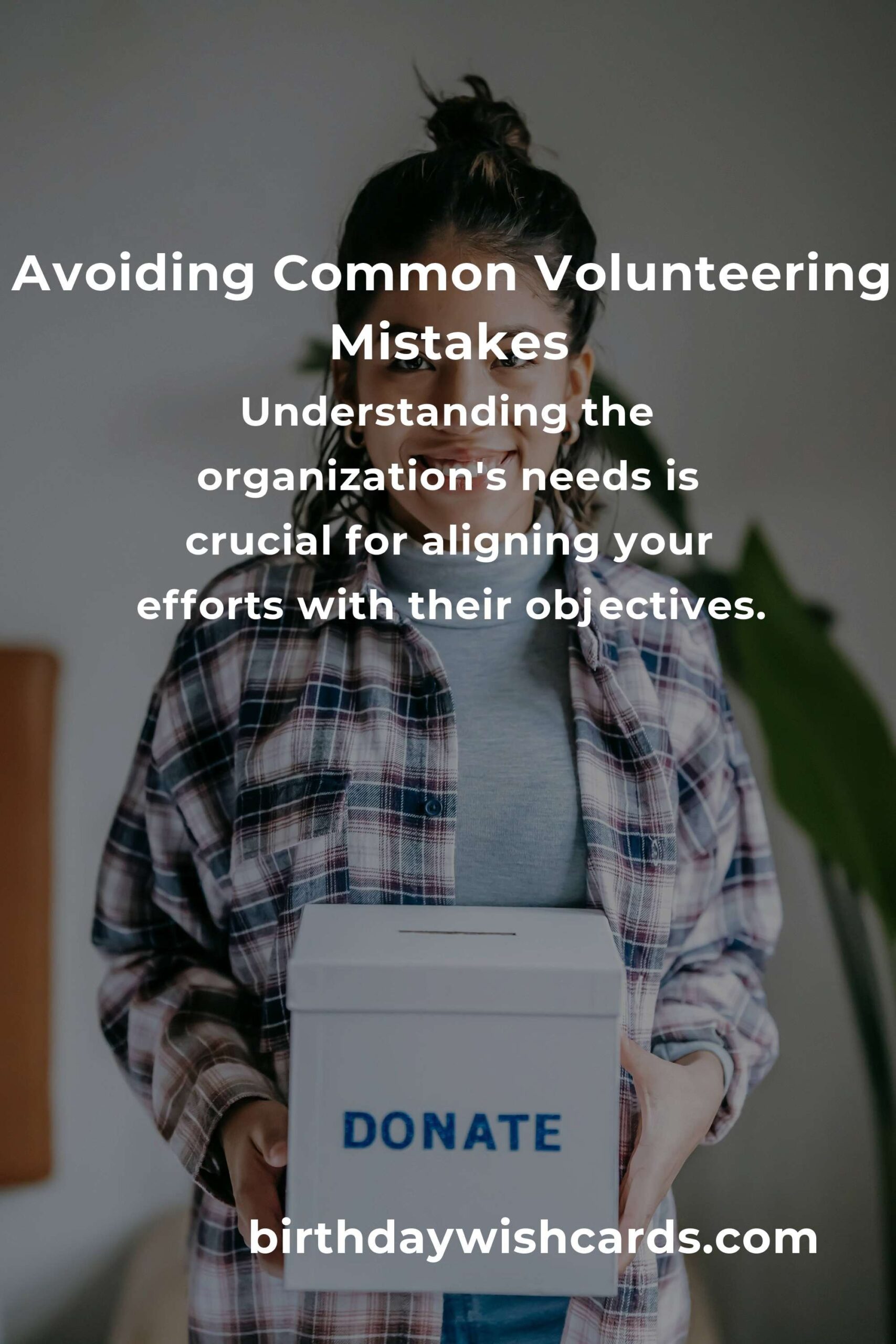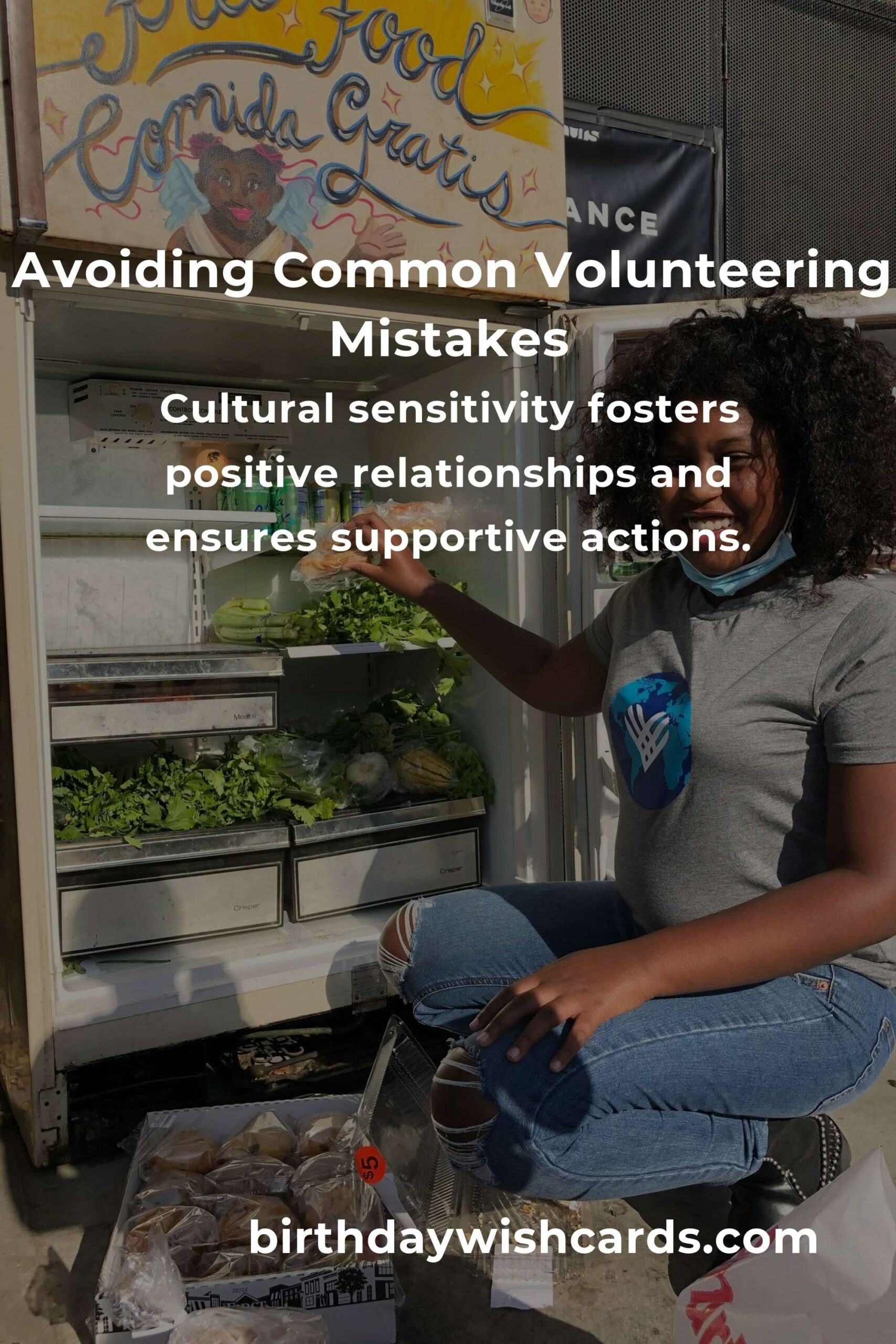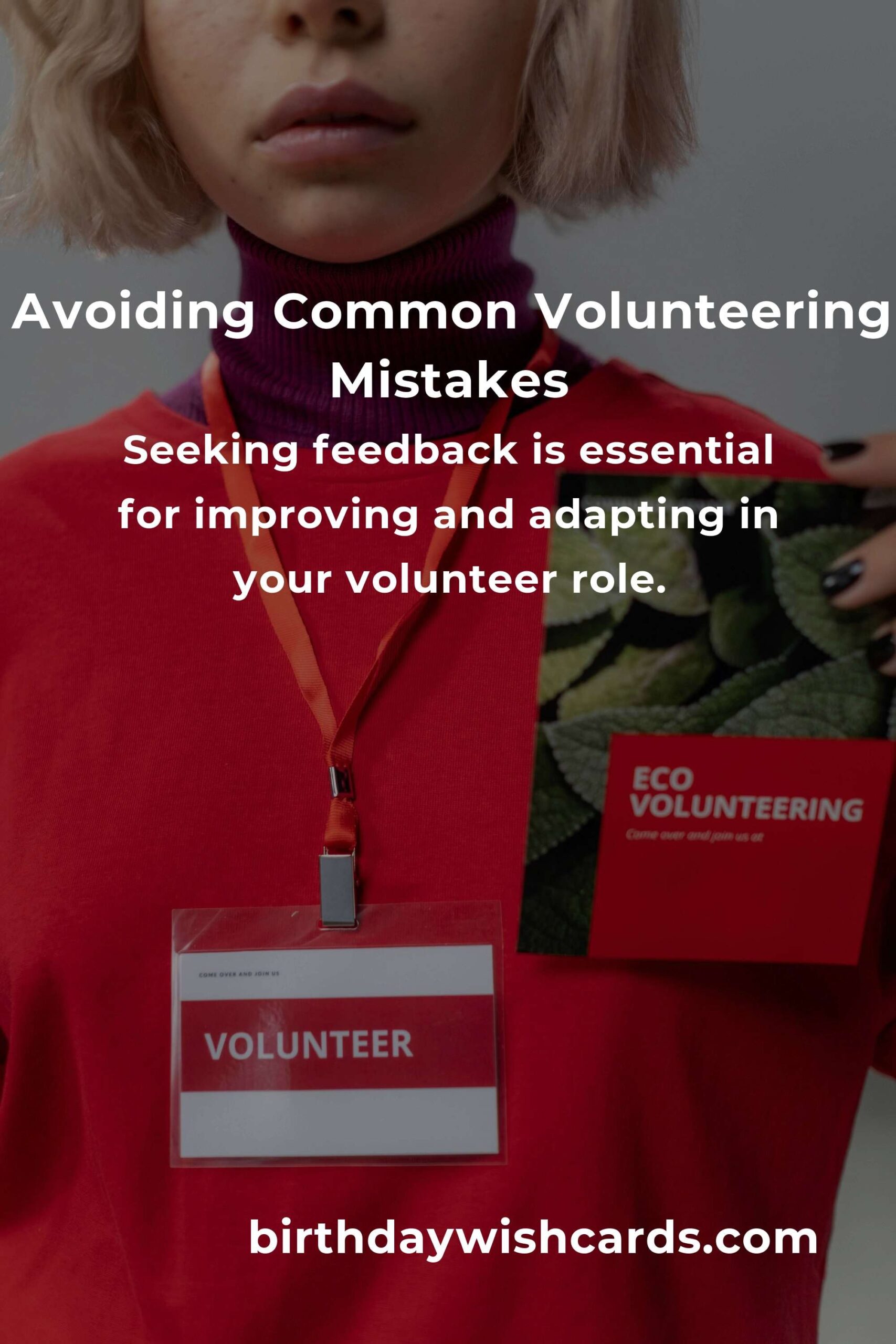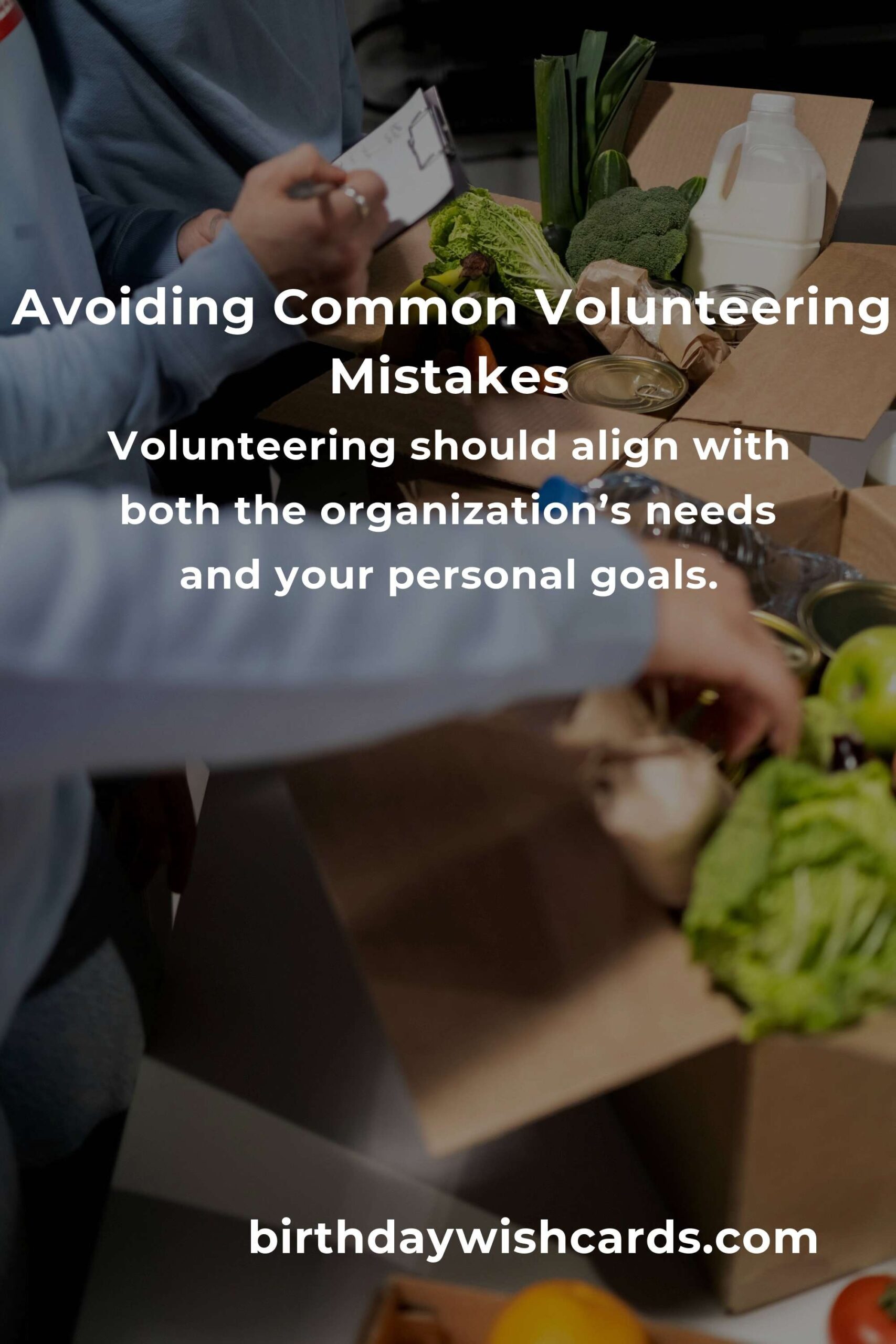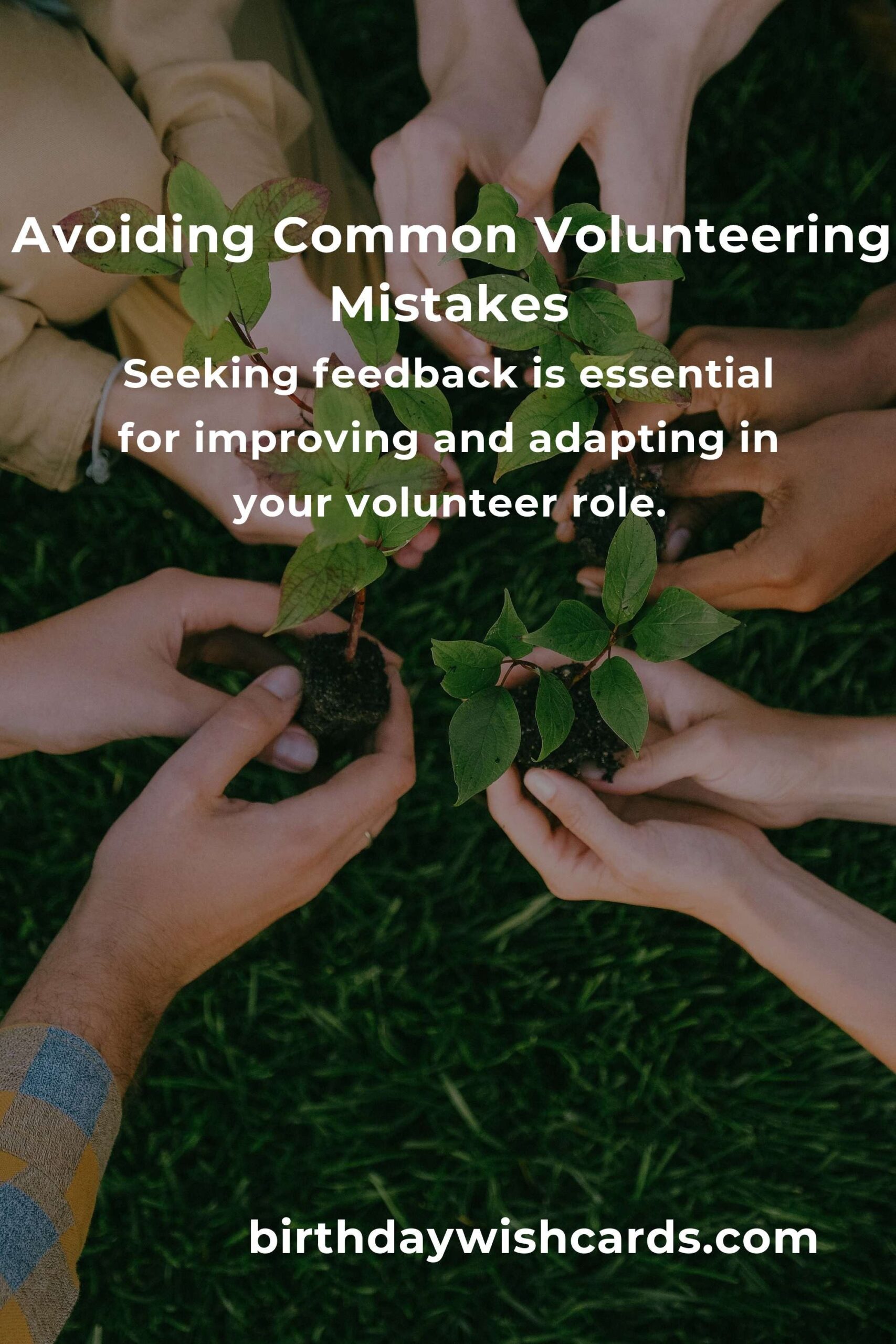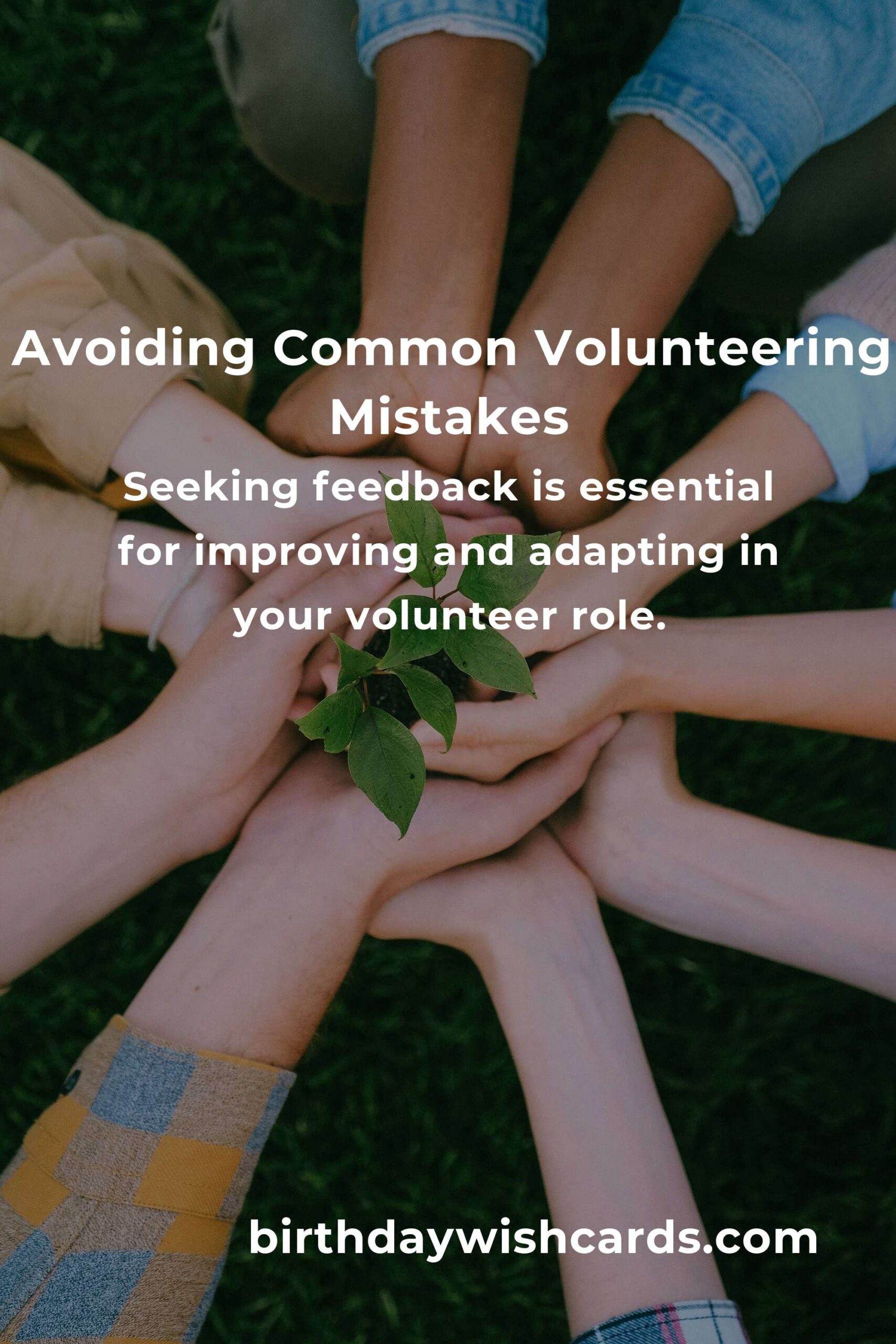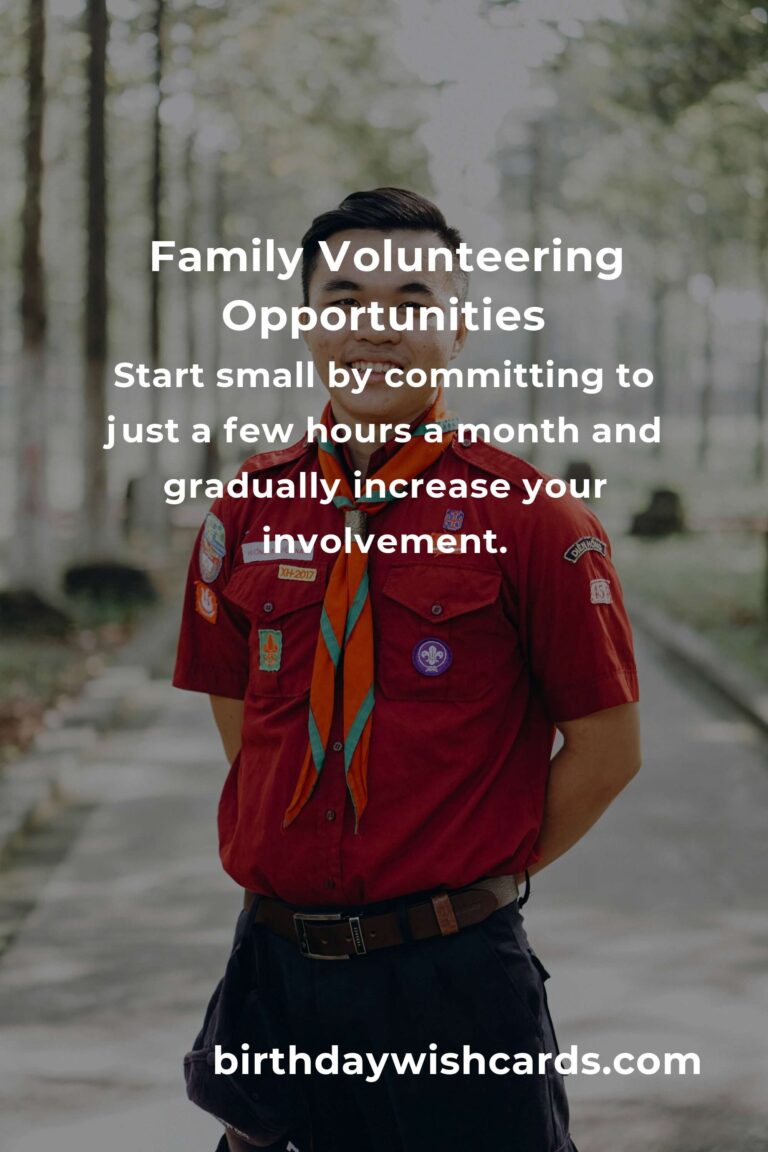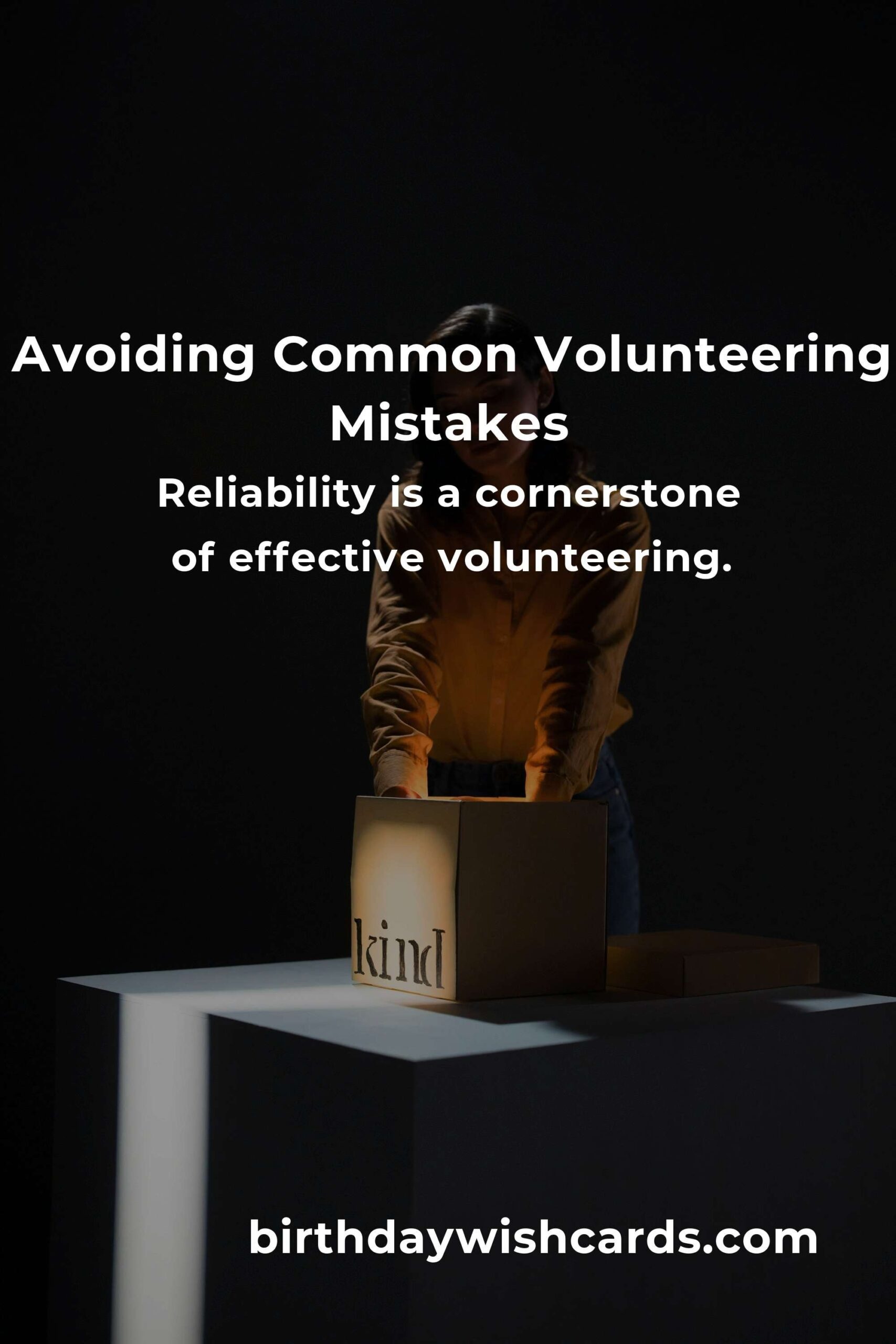
Volunteering is a noble pursuit that offers numerous benefits to both the volunteer and the community they serve. However, like any endeavor, there are common pitfalls that can hinder the experience. Being aware of these mistakes and knowing how to avoid them can lead to a more fulfilling and effective volunteering journey.
1. Not Understanding the Organization’s Needs
One of the most common mistakes volunteers make is not fully understanding the needs of the organization they are working with. It’s crucial to have a clear understanding of the mission, goals, and specific tasks required by the organization. This ensures that your efforts are aligned with their objectives and that you can contribute meaningfully.
2. Overcommitting Your Time
While enthusiasm is commendable, overcommitting your time can lead to burnout and disappointment. It’s important to realistically assess how much time you can dedicate to volunteering and communicate this to the organization. Setting clear boundaries will help maintain a balance between volunteering and personal responsibilities.
3. Lacking Cultural Sensitivity
Cultural sensitivity is essential when volunteering, especially in diverse or international settings. Volunteers should take time to understand the cultural norms and values of the communities they are serving. This respect fosters positive relationships and ensures that your actions are supportive rather than intrusive.
4. Not Seeking Feedback
Feedback is a vital component of growth in any role, including volunteering. Not seeking feedback can limit your ability to improve and adapt. Regularly ask for feedback from the organization and be open to constructive criticism. This willingness to learn will enhance your effectiveness and satisfaction as a volunteer.
5. Ignoring Personal Goals
Volunteering should be a mutually beneficial experience, aligning with both the organization’s needs and your personal goals. Ignoring your personal objectives can lead to dissatisfaction. Before committing, reflect on what you hope to gain from the experience, whether it’s skill development, networking, or personal fulfillment.
6. Not Being Reliable
Reliability is a cornerstone of effective volunteering. Failing to show up or complete tasks as agreed can disrupt the organization’s operations and damage trust. Commit to being reliable by showing up on time and completing your duties diligently.
7. Avoiding Communication
Effective communication is key in any volunteer role. Avoiding communication can lead to misunderstandings and missed opportunities. Maintain open lines of communication with the organization and fellow volunteers to ensure clarity and collaboration.
Conclusion
Volunteering is a rewarding experience that contributes significantly to personal growth and community development. By avoiding these common mistakes and adopting a thoughtful, considerate approach, volunteers can ensure their efforts are both impactful and personally satisfying.
Understanding the organization’s needs is crucial for aligning your efforts with their objectives. Overcommitting your time can lead to burnout and disappointment. Cultural sensitivity fosters positive relationships and ensures supportive actions. Seeking feedback is essential for improving and adapting in your volunteer role. Volunteering should align with both the organization’s needs and your personal goals. Reliability is a cornerstone of effective volunteering. Effective communication is key in any volunteer role.
#Volunteering #CommunityService #VolunteerMistakes #GivingBack #HelpOthers

